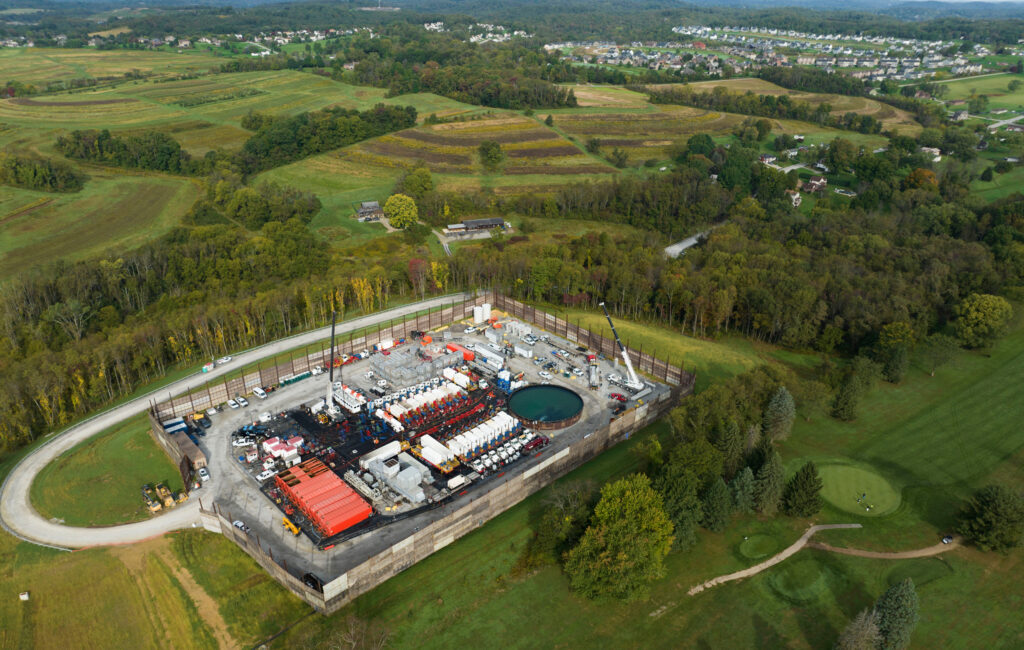Public health advocates reviewing Josh Shapiro’s tenure as Pennsylvania’s governor say he has fallen short in protecting residents from the harmful effects of hydraulic fracturing, despite having outlined a plan nearly five years ago as attorney general.
The Environmental Health Project (EHP), a Pittsburgh nonprofit, criticizes Shapiro for not fulfilling promises made in a 2020 grand jury report with eight recommendations to mitigate the risks of fracking in intensely affected regions. Residents hoped the report would prompt the state to address their concerns, supported by academic research, about air and water pollution’s impact on public health.
Despite this, the governor has allowed the industry to hide the identities of chemicals used in fracking under trade secret claims and has not lobbied for legislation to protect the public, according to a white paper released Tuesday by EHP. In 2024, state requirements for fracking firms to disclose chemical-use plans to regulators began, but the specific chemicals deemed proprietary are still withheld from the public.
EHP states, “Residents affected by shale gas infrastructure expected Gov. Shapiro’s administration to safeguard their health from pollution sources.” Two years on, they are still awaiting significant action, and the report concludes Shapiro has not fulfilled commitments to Pennsylvanians.
Shapiro’s office did not comment directly on the EHP report, only stating the governor’s focus on climate change, emissions reduction, and public health protection while promoting job creation and consumer protection.
Since the mid-2000s, when fracking technology began extracting Pennsylvania’s natural gas reserves, the industry has been criticized for polluting groundwater and air and releasing methane, a potent greenhouse gas.
Pennsylvania is the second-largest natural gas producer in the U.S., trailing only Texas. As of December 2024, there were 11,591 active gas wells on 3,927 well pads, according to the Marcellus Shale Coalition. Thirty-six of the state’s counties have at least one producing well.
Some residents near these wells, particularly in Southwest and Northeast Pennsylvania, report industrialization of rural areas and constant truck traffic. They say they’ve received little state regulatory support regarding health issues.
The Marcellus Shale Coalition denies fracking harms public health, claiming natural gas is safe and can improve health. They argue that activists misrepresent data to oppose energy development, while strong state regulations prioritize community health and safety.
The health impacts associated with fracking, according to the new report, include respiratory issues, cancer, adverse birth outcomes, and mental health challenges. Approximately 1.5 million Pennsylvanians live within half a mile of a natural gas well pad.
Research linking fracking to health problems continues to grow. Over 30 peer-reviewed studies have connected fracking to health harms, and EHP included thousands of studies in a “compendium” by Physicians for Social Responsibility and Concerned Health Professionals of New York.
EHP argues no further proof is needed to confirm fracking’s health impacts, urging immediate action by state leaders. However, Pennsylvania’s government, citing insufficient knowledge, has not acted decisively, despite a grand-jury report highlighting the issue years ago.
March’s special election gave Democrats a slight majority in the state House, but the Senate remains Republican-controlled, complicating Shapiro’s legislative efforts. EHP suggests he should engage lawmakers to pass protective bills.
While acknowledging some progress in capping abandoned wells and boosting environmental funding, EHP criticizes the governor’s lack of advancement on the grand jury’s fracking-related goals. They also condemned Shapiro’s 2023 agreement with CNX for lacking substantial new requirements for transparency.
EHP called for increased setback distances from gas infrastructure, full chemical disclosure, and a comprehensive health plan to prevent fossil fuel pollution exposure.
The advocacy group argues that Pennsylvania cannot delay action and should not await further studies to protect its citizens’ health and environment.
Original Story at insideclimatenews.org
